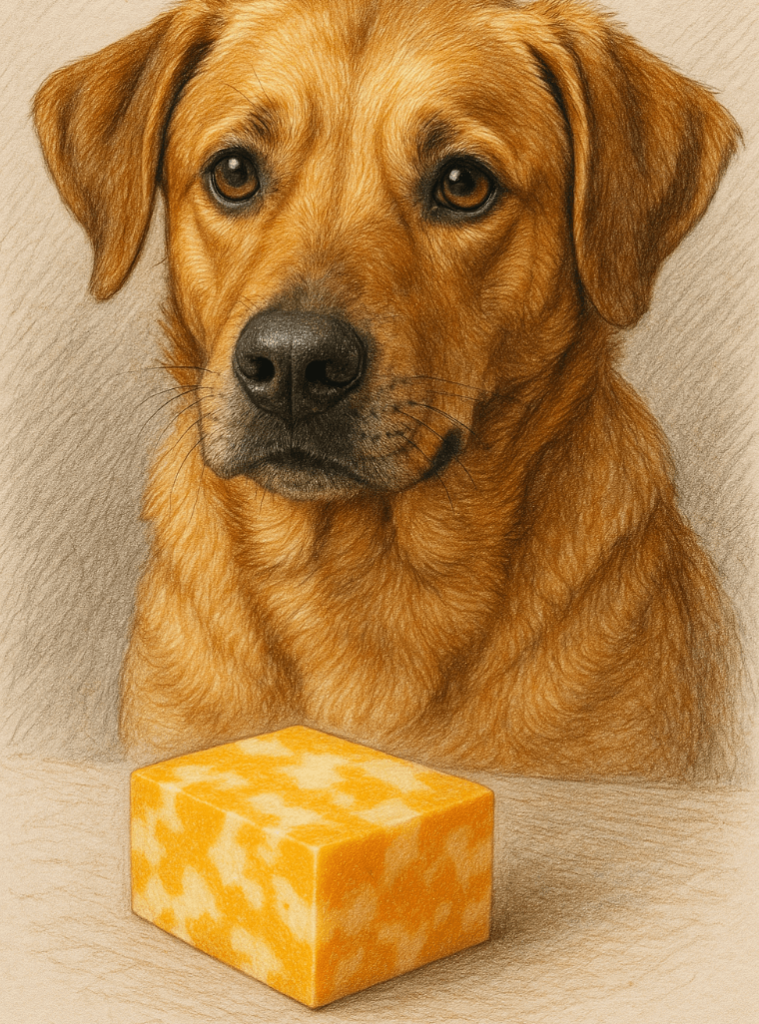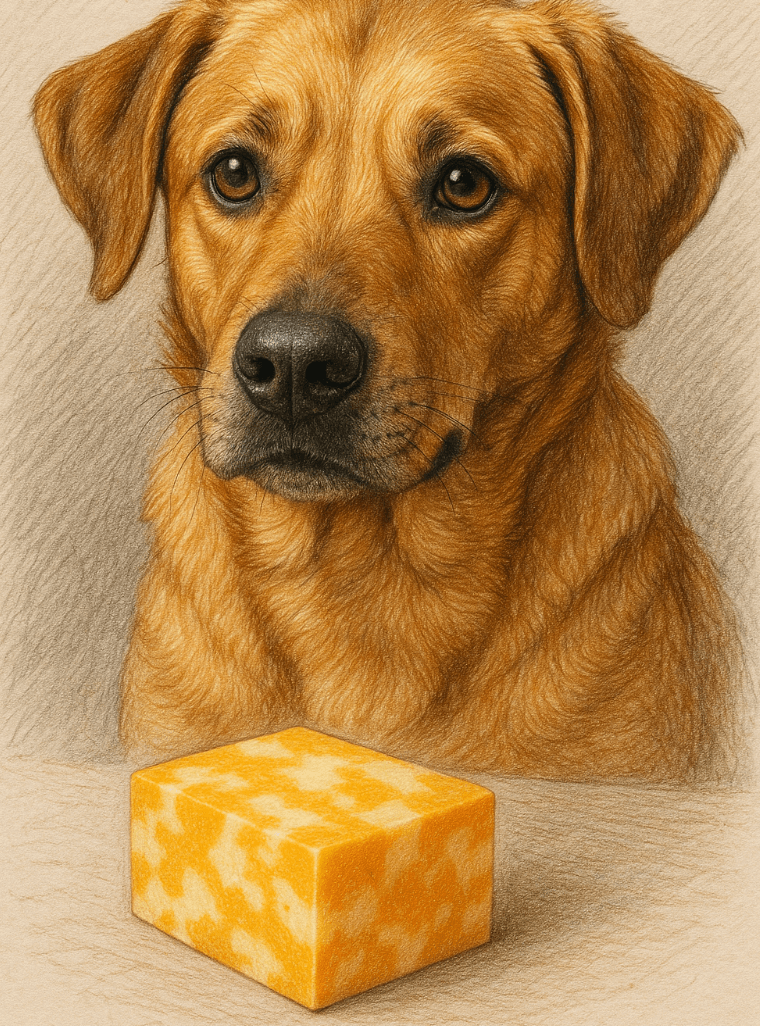Can Dogs Eat Colby Jack Cheese? What You Need to Know
Cheese is a popular treat for humans, and many dog owners wonder if it’s safe to share this delicious snack with their furry friends. Colby Jack cheese, in particular, is a mild and creamy option that might seem appealing as an occasional treat for your dog. However, before tossing a piece of Colby Jack to your pup, it’s important to understand the potential benefits, risks, and guidelines for feeding cheese to dogs. In this blog post, we’ll explore everything you need to know about whether dogs can eat Colby Jack cheese, how much is safe, and what alternatives exist for rewarding your canine companion.
Is Colby Jack Cheese Safe for Dogs?
While Colby Jack cheese is not toxic to dogs, there are certain factors to consider before offering it as a treat. Moderation and awareness of your dog’s individual needs are key to ensuring their safety.
Low Lactose Content:
Colby Jack cheese contains less lactose than other cheeses, making it easier to digest for some dogs. However, lactose intolerance is still a possibility.Moderate Fat Content:
This cheese has a moderate fat content, which can be beneficial in small amounts but harmful in excess, especially for overweight or obese dogs.No Toxic Ingredients:
Unlike certain foods (e.g., chocolate or onions), Colby Jack cheese does not contain ingredients that are inherently toxic to dogs.Potential Allergies:
Some dogs may have sensitivities or allergies to dairy products, so monitor your dog closely after offering cheese.High Sodium Levels:
Colby Jack cheese contains sodium, which can lead to dehydration or other health issues if consumed in large quantities.
By understanding these factors, you can make informed decisions about whether Colby Jack cheese is suitable for your dog.
Benefits of Feeding Colby Jack Cheese to Dogs
When given in moderation, Colby Jack cheese can offer some benefits to your dog. These advantages make it an appealing option for occasional treats or training rewards.
Rich in Protein:
Cheese provides a good source of protein, which supports muscle development and overall health.Calcium for Strong Bones:
The calcium content in Colby Jack cheese promotes strong bones and teeth, essential for active dogs.Training Incentive:
Its savory flavor makes it an excellent motivator during obedience training or positive reinforcement sessions.Easy to Portion:
Colby Jack cheese can be cut into small, bite-sized pieces, making it convenient for portion control.Hydration Boost (when melted):
Melted cheese can be mixed with water or broth to create a hydrating and tasty treat for picky eaters.
These benefits highlight why Colby Jack cheese can be a useful addition to your dog’s diet when offered responsibly.
Check this guide 👉Can Dogs Eat Coleslaw? Best 7 Expert Tips!
Check this guide 👉Can Dogs Eat Chayote? Best 7 Expert Tips!
Check this guide 👉Can Dogs Eat Passionfruit? Best 7 Expert Tips!

Safe Cheeses for Dogs | Cheeses to Avoid for Dogs |
|---|---|
Colby Jack (low lactose) | Blue cheese (contains mold toxins) |
Mozzarella (low sodium) | Brie (high fat, rich ingredients) |
Cottage cheese (soft texture) | Processed cheese slices |
Cheddar (in small amounts) | Cheeses with added garlic/onions |
Swiss cheese (mild flavor) | Cheese with artificial additives |
How to Safely Feed Colby Jack Cheese to Your Dog
If you decide to give your dog Colby Jack cheese, it’s crucial to follow these guidelines to ensure their safety and well-being.
Start with Small Portions:
Begin with a tiny piece to see how your dog reacts, especially if they’ve never had cheese before.Monitor for Digestive Issues:
Watch for signs of upset stomach, diarrhea, or vomiting, which could indicate lactose intolerance.Choose Plain Varieties:
Avoid flavored or processed versions of Colby Jack cheese, as they may contain harmful additives.Limit Frequency:
Offer cheese as an occasional treat, not a daily snack, to prevent weight gain or nutritional imbalances.Consult Your Veterinarian:
Always seek professional advice, especially if your dog has existing health conditions or dietary restrictions.
Following these steps ensures that your dog enjoys Colby Jack cheese safely and responsibly.
How to Safely Feed Colby Jack Cheese to Your Dog
If you decide to give your dog Colby Jack cheese, it’s crucial to follow these guidelines to ensure their safety and well-being.
Start with Small Portions:
Begin with a tiny piece to see how your dog reacts, especially if they’ve never had cheese before.Monitor for Digestive Issues:
Watch for signs of upset stomach, diarrhea, or vomiting, which could indicate lactose intolerance.Choose Plain Varieties:
Avoid flavored or processed versions of Colby Jack cheese, as they may contain harmful additives.Limit Frequency:
Offer cheese as an occasional treat, not a daily snack, to prevent weight gain or nutritional imbalances.Consult Your Veterinarian:
Always seek professional advice, especially if your dog has existing health conditions or dietary restrictions.
Following these steps ensures that your dog enjoys Colby Jack cheese safely and responsibly.
Common Mistakes to Avoid When Feeding Cheese to Dogs
While cheese can be a tasty treat, there are several mistakes pet owners should avoid to keep their dogs safe and healthy.
Feeding Too Much at Once:
Overindulgence can lead to digestive upset, obesity, or even pancreatitis in severe cases.Ignoring Lactose Intolerance:
Many dogs struggle to digest lactose, so failing to test their tolerance can result in discomfort.Using Flavored or Processed Cheese:
Artificial flavors, preservatives, and added ingredients can harm your dog’s health.Neglecting Portion Control:
Even safe cheeses can become problematic if fed in large quantities regularly.Skipping Veterinary Guidance:
Failing to consult your vet before introducing new foods can lead to unintended consequences.
Avoiding these pitfalls ensures a safer and more responsible approach to treating your dog with cheese.
Healthier Alternatives to Colby Jack Cheese
If you’re looking for safer or lower-calorie treats for your dog, consider these alternatives that still satisfy their cravings.
Carrot Sticks:
Crunchy and low in calories, carrots are a healthy snack that also promotes dental hygiene.Plain Yogurt:
Unsweetened yogurt is easier to digest than cheese and provides probiotics for gut health.Peanut Butter (xylitol-free):
A small dollop of peanut butter makes a tasty and satisfying reward without the dairy.Cooked Chicken Pieces:
Lean, unseasoned chicken is a protein-rich option that most dogs love.Green Beans:
Steamed or raw green beans are low-calorie and packed with nutrients, making them ideal for weight management.
These alternatives provide variety and nutrition without compromising your dog’s health.
Fun Ways to Incorporate Colby Jack Cheese into Training
If your dog tolerates Colby Jack cheese well, it can be a valuable tool for training sessions. Here are some creative ways to use it effectively.
Reward-Based Training:
Use small pieces of cheese as a high-value reward for mastering commands like “sit” or “stay.”Hide-and-Seek Games:
Hide pieces of cheese around the house or yard to encourage problem-solving and physical activity.Interactive Toys:
Stuff cheese into puzzle toys or Kongs to keep your dog mentally stimulated and entertained.Mix with Dry Food:
Sprinkle grated Colby Jack cheese over their regular meals to entice picky eaters.Freeze for Summer Treats:
Freeze small chunks of cheese in water or broth for a refreshing snack on hot days.
Incorporating cheese into training and playtime enhances engagement and strengthens your bond with your dog.
Frequently Asked Questions About Dogs and Colby Jack Cheese
Can puppies eat Colby Jack cheese?
Yes, but only in very small amounts and under supervision, as their digestive systems are still developing.
How much Colby Jack cheese is safe for my dog?
Limit portions to no more than 1-2 small cubes per serving, depending on your dog’s size and dietary needs.
What should I do if my dog eats too much cheese?
Contact your veterinarian immediately, especially if you notice signs of digestive distress or bloating.
Are there healthier cheese alternatives for dogs?
Low-fat or lactose-free cheeses, such as mozzarella or cottage cheese, are gentler options for most dogs.
Can cheese cause pancreatitis in dogs?
Yes, excessive consumption of high-fat cheeses can lead to pancreatitis, particularly in dogs prone to obesity.
Making Smart Choices for Your Dog’s Diet
Feeding Colby Jack cheese to your dog can be a fun and nutritious way to bond, provided it’s done in moderation and with care. By understanding the potential risks and benefits, monitoring your dog’s reactions, and consulting your veterinarian, you can ensure that this treat remains a safe and enjoyable part of their diet. Remember, every dog is unique, and what works for one may not suit another. With thoughtful consideration, you can continue to spoil your furry friend while prioritizing their health and happiness.
Do Cats Have Taste Buds? Best 7 Expert Tips! – Discover how cats experience flavors and why their taste is so unique.
Do Dogs Have Taste Buds? Best 7 Expert Tips! – Discover how dogs experience taste, their preferences, and what it means for their diet and health.
Can Cats Taste Sweet? Best 7 Expert Tips! – Discover why cats can’t taste sweetness, how it affects their diet, and tips to keep them healthy and happy.
Can Dogs Taste Sweet? Best 7 Expert Tips! – Discover how dogs perceive sweetness, which foods are safe, and tips to manage their sweet cravings responsibly.





